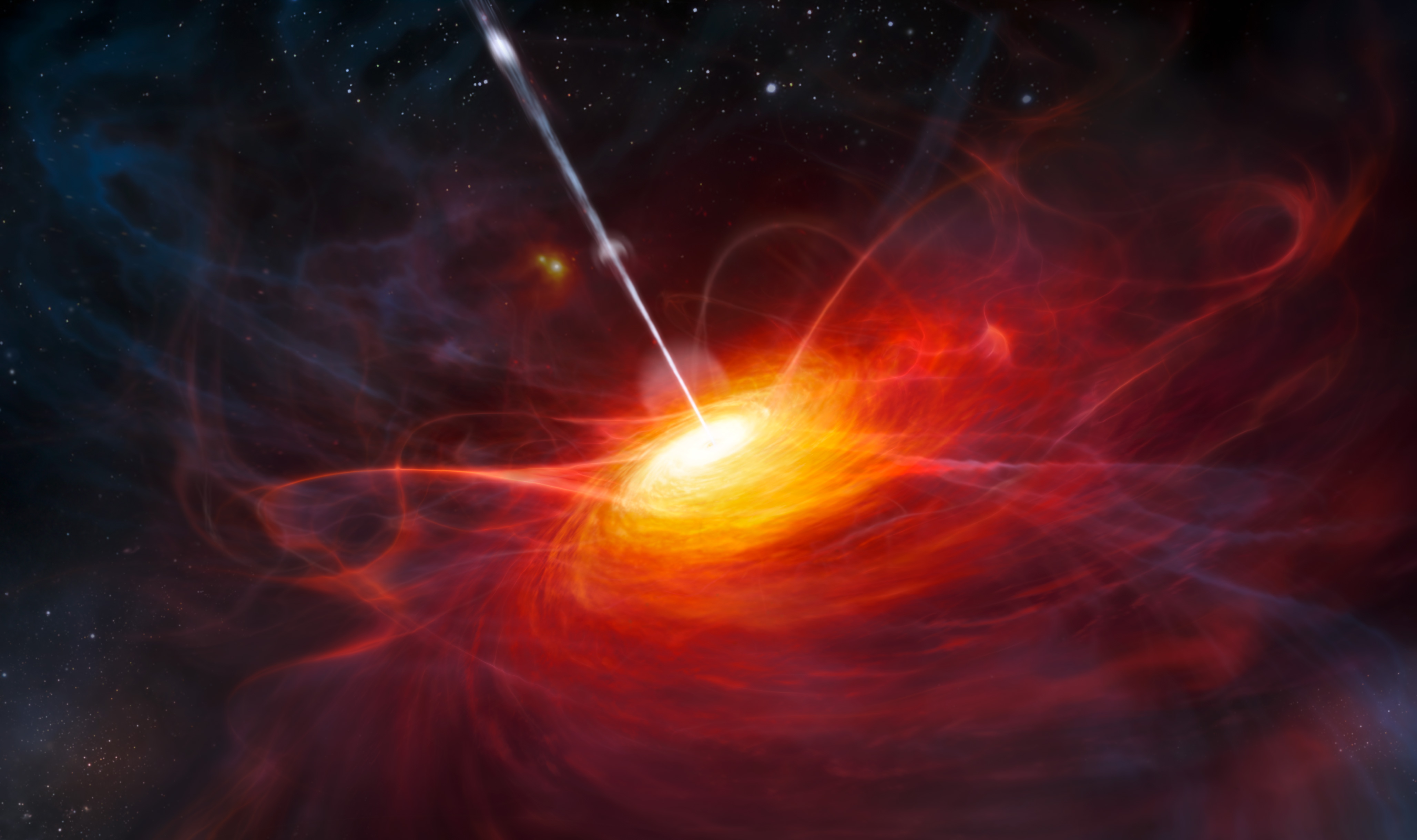
Advertisement
A black hole might still be inescapable for anything that isn’t faster than light, but researchers now argue that it’s also not a one-way trip into oblivion. Their scientific papers, published in Physical Review Letters and Physical Review D, proposes that black holes will eventually turn into white holes that spew up matter they’ve eaten in the distant past. The study comes from the contradiction posed by a black hole, an object that possessed mass but no size. But if that is true, the singularity will possess infinite density.
When researchers are told something is infinite, they say that the current mathematical model no longer applies to the matter. They then come up with a new model that can measure the supposedly infinite property. Take how Newton’s law of gravity explains that the weight of an object will increase as it approached a much bigger object. Going by that, an object near the core of the Earth would have infinite weight.
However, we know that such objects do not gain massive weight by the time they reach the center of the planet. So a different and much more complex model of physics takes over the job of explaining their behavior. (Related: Understanding massive black hole formation: Researchers believe supersonic gas streams from the Big Bang may provide the answer.)
Einstein’s theory of general relativity gets displaced by quantum gravity
The same exception supposedly applies to Einstein’s theory of general relativity when it comes to black holes. Going by this theory, a singularity of infinite density can be found at the very center of a black hole. Instead of pursuing that mathematical model to its logical end, researchers switch over to the theory of “quantum gravity” to explain gravity at the smallest level. This theory is less a unified system of thought and more a collection of different proposals.

One particular proposal is called “loop quantum gravity.” It envisions the entirety of space-time as a framework of spin networks, each of which can represent the states of the particles and fields that comprise them, and the interactions between them. These networks change over time according to their contents.
The neat thing about this model is that it sets a limit on the smallest possible unit of space and time. Past this quantum, space-time cannot get any smaller, thereby heading off the idea of infinity.
New math model says black holes will one day become their opposite white holes
While it is a well-defined mathematical model, loop quantum gravity was difficult to apply to the conditions within a black hole. However, researchers at Pennsylvania State University and Louisiana State University finally succeeded in using the model to explain what was going on inside the cosmic phenomenon.
Instead of Einstein’s infinitely dense singularity, they reported that space-time curves very sharply near the heart of the black hole. In the distant future, this curve will reach an area that resembles the predicted shape of a white hole.
Whereas a black hole draws matter into its maw, a white hole expels matter out of its expanse. One of the most popular theories is that black and white holes are connected to each other, with the latter ejecting what the former consumed, much like how a wormhole is supposed to work.
The new model suggests that matter falling into a black hole will eventually be expelled out of the white hole. It will just take an incredible length of time because the powerful gravitational field in the black hole slows down time to a crawl. By the time that happens, the black hole will have turned into a white hole. Such a metamorphosis may explain many mysterious phenomena in the depths of outer space.
Sources include:
Submit a correction >>
This article may contain statements that reflect the opinion of the author
Advertisement
Advertisements
















